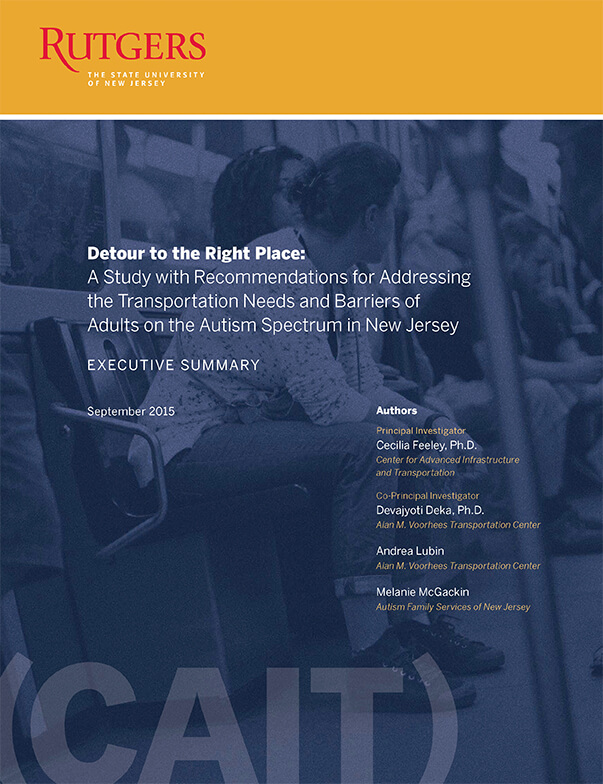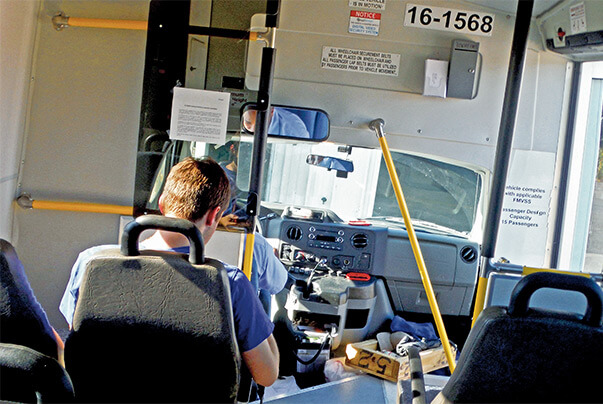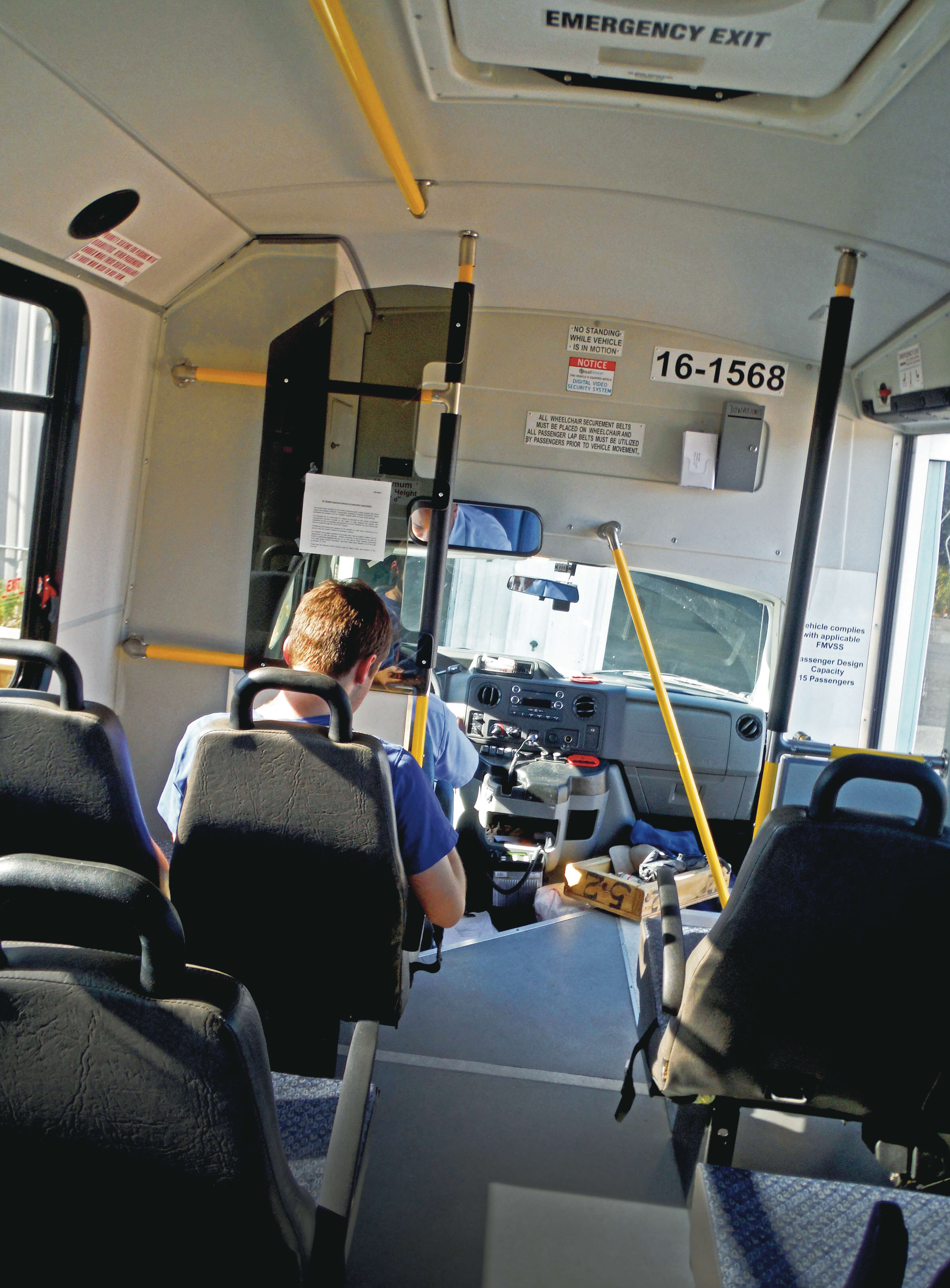New legislation establishes task force to examine difficulties that adults with developmental disabilities face just getting around
A new law signed by Governor Chris Christie last May (2017) arose from the final report of a two-year research project led by CAIT project manager Dr. Cecilia Feeley and coauthors Dr. Devajyoti Deka and Andrea Lubin from the Voorhees Transportation Center (VTC), and Melanie McGackin of Autism Family Services of New Jersey. The legislation is an important step toward meeting transportation needs of New Jersey citizens with developmental disabilities.
The new law (S-1825/A-3432) calls for an 11-member task force to study and make recommendations concerning mobility and support services that would improve transportation options for adults with autism spectrum disorder (ASD).
In the General Assembly, Majority Leader Louis Greenwald and Democratic representatives Pamela Lampitt, Daniel Benson, Marlene Caride, and Nicholas Chiaravalloti sponsored the bill. In the Senate, the legislation was authored and sponsored by senators Paul Sarlo, Bob Gordon, and Nilsa Cruz-Perez.
For 70,000 adults with autism in New Jersey, getting to and from work, medical appointments, continuing education classes, and social or community activities, is not as simple as hopping on a bus or summoning Uber.
The Rutgers research project surveyed more than 700 adults with autism and family members about their transportation habits and the challenges they face securing adequate travel options. In addition to the surveys, the team held listening sessions with 25 public and private organizations that serve the autism community and conducted structured interviews and focus groups comprising adults with ASD and their parents or guardians.
The research report, Detour to the Right Place: A Study with Recommendations for Addressing the Transportation Needs and Barriers of Adults on the Autism Spectrum in New Jersey, details obstacles that those with developmental disabilities—and their caregivers—must overcome to carry out normal daily activities. The report also offers recommendations on how to remove transportation-related barriers that often stand in the way of this population living independently, holding a job, and engaging socially.
Senator Sarlo (D-Bergen Passaic) noted, “While we have done a good job in addressing the needs of children with autism, I believe we haven’t done enough to understand the challenges faced by adults with the disorder.”
“There is a growing need in our state for transportation services so adults with ASD can assert their independence and improve their quality of life,” said Greenwald (D-Camden/Burlington). “… Having an accessible, reliable mode of transportation available makes every other facet of life easier. Convening this task force will allow the state to … address those needs accordingly.”
The Mobility and Support Services Task Force will consist of the commissioners from six New Jersey State departments—Children and Families, Education, Health, Human Services, Labor and Workforce Development, and Transportation—as well as the Secretary of Higher Education and four experts from the public. The group will issue a report to the governor and the legislature within one year of its organization.
“Adults with ASD can and do live full lives if they have the proper network of support,” said Benson (D-Mercer/Middlesex).
The original CAIT research project was supported with funding from the Governor’s Council for Medical Research and Treatment of Autism and in partnership with the Voorhees Transportation Institute and Autism Family Services of New Jersey.
The final research report and executive summary are available for download on the CAIT website. To read the law and a full list of sponsors, go to www.billtrack50.com.
July 2017




